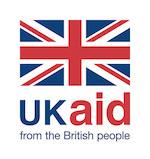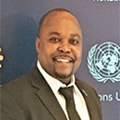Rwanda currently hosts about 150,000 refugees, mainly from bordering Burundi and the Democratic Republic of Congo (DRC); the latter group has been in Rwanda for nearly two decades. As a signatory to the Comprehensive Refugee Response Framework (CRRF), there is commitment from the Government of Rwanda to increase inclusion of refugees in Rwandan social and economic life. Part of the Government of Rwanda’s Vision 2020 initiative is an effort to move towards a knowledge-based economy – and one gap identified is a lack of professional training in the field of digital technology.
ALIGHT (Formerly American Rescue Committee), in a strategic partnership with the GSMA Mobile for Humanitarian Innovation programme (M4H), is exploring ways to improve the efficiency and effectiveness of humanitarian response in Rwanda through expanding access to mobile services, the digital economy and related infrastructure. ALIGHT and the GSMA M4H observed that there is a demand for people with computer coding skills in Rwanda, which has a growing and active business community. For refugees, who may move in the future either to urban centres in Rwanda or to other countries, coding is a transferrable skill which is in demand in many economies.
In 2019, talented potential programmers from refugee and host communities in Nyabiheke and Gihembe refugee camps were selected to undergo a comprehensive training scheme in six in-demand coding languages, including JAVA and JavaScript. These coding languages are used to build websites, develop applications for smartphones and to develop software. The curriculum for the training scheme was developed in partnership with Rwanda’s kLab (knowledge Lab), a unique open technology hub in Kigali city. Mobile network operator MTN, ALIGHT’s United States-based Changemakers, and UNHCR (The UN Refugee Agency) donated computer equipment which allowed for a dedicated classroom space to be set up for the students. When the lab is not in use for classes, other members of the community in Gihembe and Nyabiheke can use the internet connectivity and increase their computer literacy.
A core part of the training scheme will be to provide graduates with access to internship opportunities that will eventually lead to paid employment. By equipping young refugees with digital skills, they will be exposed to opportunities in a borderless economy. Through this partnership, ALIGHT is reaching out to potential companies who are looking for individuals with coding skills to ensure they are aware of refugees’ right to work in Rwanda, and to build pathways for graduates of the scheme into paid or self-employment.
Some of the coding students (both refugees and those from the host community) have made significant livelihood gains after just a few months of learning. Eric Lukabya is one example of these livelihood gains. Eric managed to create a small e-commerce website for his father’s carpentry business, and the website has since integrated mobile phone payment options and has grown into a digital business platform. ALIGHT and the GSMA M4H hope that through this partnership, young refugees and host community members will be equipped with the necessary coding skills to access employment in various established and upcoming industries in Rwanda, and further position refugee populations as an accessible workforce in Rwanda.
Valuable lessons being learnt in through this initiative can be shared and/or replicated in other camps and countries. It provides first hand example of how the public and private sectors can best collaborate and partner to shape and sustain facilitate refugee and host community access to an inclusive socio-economic system.



